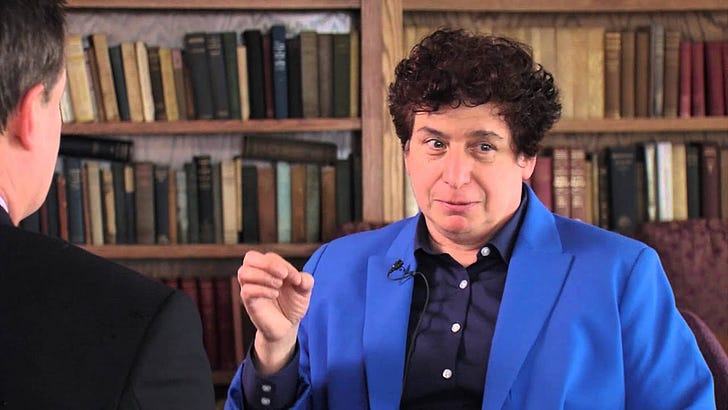Last Friday, I found myself surrounded by a big crowd. Although I interacted with a few people, I felt as if I was floating in a bubble. It was a paradoxical feeling: sparkly yet alone. Is this a good or bad thing?
1. Click this link to last week’s article: 'A little respite: reminders, revelry and love?'A short post of a little paradox
For the beautiful respite, I was on my own. I didn’t think I felt lonely, but I did. There were moments when I felt very much apart from everyone, disconnected from the norm. I’ve become so used to it that it’s okay. Is that bad?
I relish each respite moment. So, I only see all this in hindsight, journalling and reading a quote like this:
Loneliness is the distressing feeling of being alone or separated. Social isolation is the lack of social contacts and having few people to interact with regularly. You can live alone and not feel lonely or socially isolated, and you can feel lonely while being with other people. - National Institute of Ageing1
I feel much more connected via my Substack community than being around many people. However, it takes only one highly meaningful friend and a few moments together to make any loneliness disappear. Is this enough?
2.
There are many essential reminders that Janice raises here.
My comment:
Hi Janice, This is an important topic and resource for everyone. I always appreciate the graceful way you reflect and share your ideas. This article, together with another, inspires me to share more of my reflections. To pull one thread here: in our love-bubble, I enabled my parents and I to have more treasured moments together. Sometimes this may have felt like we were isolating ourselves from everyone, but in other dramatic moments, I felt like I was protecting them.
Other thoughts:
I look back at the rollercoaster we had caring for my father, and I know firmly that we couldn’t have done more than we did or less. Everything was unpredictable and scary. My respite time was one hour every day: walk to gym-run-walk back home. The treadmill routine recharged me and sustained the long marathon of care. The support was Mum and I tag-teaming. This was a privileged situation.
I survived so this must have been enough, right?
3.
My Comment:
Some [friends and family] wondered why I 'hunkered' down away from everyone - they didn't realise that I'd rather conserve my energy, NOT explaining what we did all the time, educating others or explaining why their suggestions don't work.
Self-preservation & setting hard boundaries to protect our love-bubble was a survival tactic. I appreciated people were well-intentioned BUT in my book, love is unconditional, we're not an opportunity for other's to play 'hero' or a conduit for others to demonstrate their charitable acts. As you can tell my patience is boundless for my loved ones and set in concrete to protect us.......Ohhhh gosh I'll gently step down from my soapbox. Here sitting alongside you in empathy and solidarity!
Other thoughts:
Please be mindful of HOW you connect with caregivers. Anne has offered some helpful advice. Caregivers need to conserve energy.
Here’s more helpful advice from Suleika Jaouad: How you can support a friend through cancer (July 18, 2019)
Avoid asking “how can I help?” It can be hard for people to ask for what they need, so instead offer concrete, practical ways of providing support, whether driving them to and from appointments, babysitting, cleaning, delivering meals, doing chores, or tending their garden.
Don’t forget their caregiver. Cancer doesn’t just affect a patient, but an entire family. If it’s appropriate, offer to go to doctor’s appointments in their caregiver’s place. Give their caregiver a gift certificate for a massage, or offer them a weekend away so they can rest and relax. When you visit, bring a meal so that the caregiver does not have to host.
Social connection is essential.
As Janice said, Tech enables us to connect more now. There are forums, some are anonymous e.g. Carers UK online forum (Click here to see their support). Carers get it.
It’s great to meet people in real life, have coffee and talk about anything other than the care situation. OR speak with people who understand. OR not!
There are no right or wrongs here. Find your ‘enough’!
The unfortunate reality is that Caregivers are different from any ‘norm’. This is more acute when ‘society’ revolves around work/economy/finance more than care and community. (I’ll be delving into this topic at a later date).
Here’s one perspective:
4. You are not alone! We are millions of caregivers.
I hope we can all remember this song's essence and message.
Try to connect, even if you feel alone, lonely or isolated. We are creatures of connection. Empathy and inspiration are here if you need it.
Dear Evan Hansen2 The film focuses on the fragility of life, Evan’s struggle with depression and anxiety, and the need for connection.
Please ‘❤️’ LIKE the article & consider subscribing!
Carer Mentor by Victoria is free to read. If you have the means and would like to support the publication, I welcome monthly (£6) and annual (£50) subscriptions. Thank you for your ongoing support.
https://dearevanhansen.com/ . The IMDb review








If you have an article on 'You are Not Alone', please share the URL, Thank you!
Can you share 'A Time When... I felt less alone, or someone made me feel welcomed, or a new connection?'
I love this article (but I am biased!). I especially appreciate the song at the end - one I have hummed to myself on more than one occasion. Thank you.